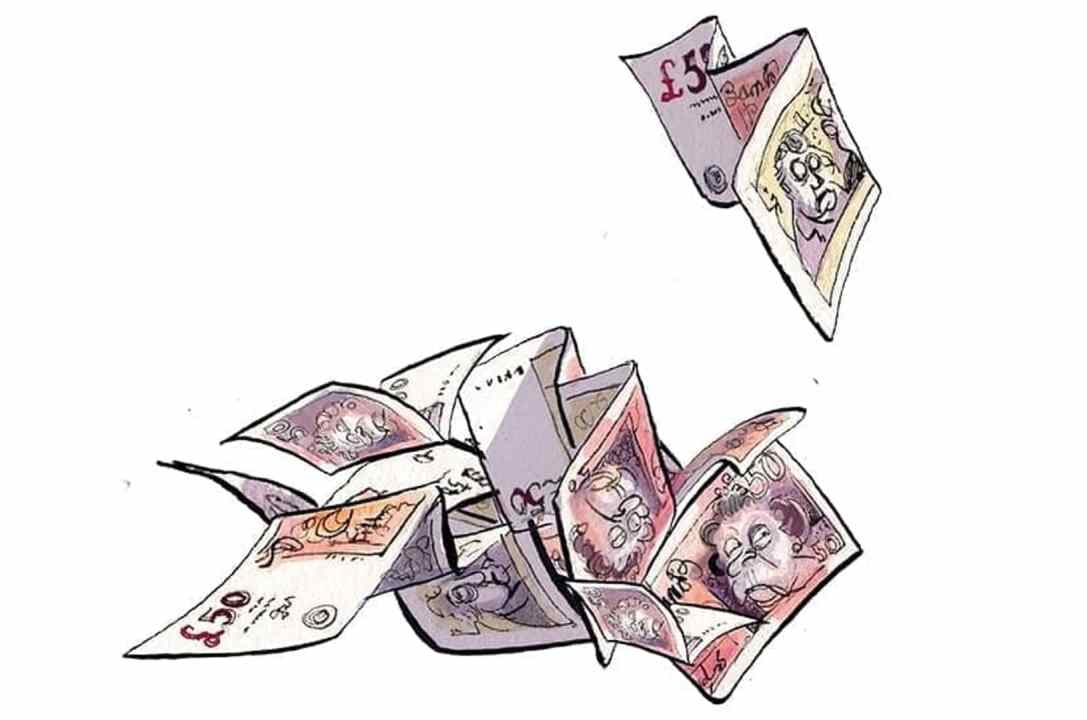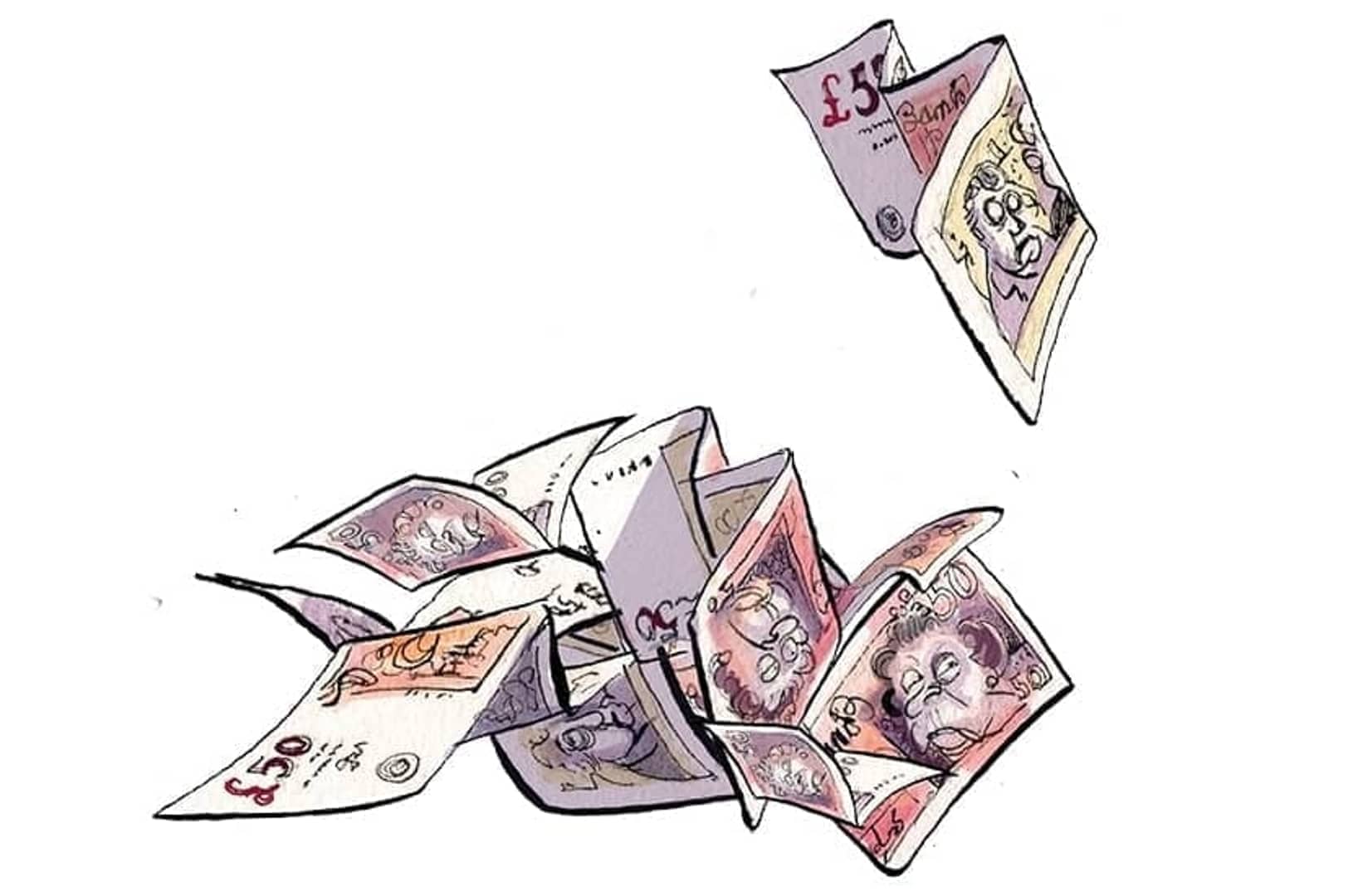Speaking to his ministers at the Élysée Palace last Thursday, the très sérieux Emmanuel Macron called for unity and sacrifice as he announced the end of the age of abundance because of a parade of horrors, including global warming, war in Ukraine and the ongoing supply problems.
‘What we are currently living through is a kind of major tipping point or a great upheaval,’ said Macron. ‘We are living through the end of what could have seemed an era of abundance…the end of the abundance of products, of technologies that seemed always available…the end of the abundance of land and materials including water.’
What is abundance, though? It is the product of modernity – a singular episode in the 300,000-year history of our species that gradually lifted humanity from starvation, disease, early death, ignorance, and permanent war toward historically unprecedented plentitude of food, trebling of life expectancy, management or complete eradication of a plethora of diseases, close to universal literacy and numeracy, and ‘merely’ episodic outbreaks of war.
The fact that people in the West were shocked by Russia’s invasion of Ukraine attests to a completely different mindset of us – the moderns – from that of our ancestors, who expected armies to cross borders every spring. The same can be said of our approach to the Covid pandemic. Europeans of yore ascribed pandemics to God’s wrath or the passage of Saturn, not tiny organisms that could be defeated with mRNA vaccines.
Modernity started in the Low Countries and in the United Kingdom some 300 years ago, before spreading to much of the rest of the world. Many factors set the stage for this salubrious break with our brutish past, including the Age of Discovery and the introduction of the New World staples to the Continent, the Scientific Revolution that elevated empirical evidence and practical experimentation above the wisdom of the ancients or pronouncements from authority, the Enlightenment that insisted on the primacy of logic and reason, and the Industrial Revolution that harnessed new sources of energy to make humanity much more productive and vastly richer.
Ideas are not like a jar of jelly beans. We’ll never reach the bottom and go hungry
The thread that ties different aspects of modernity – technology, science, medicine, production processes and so on – together is the notion of ‘continuous innovation’. Of course, man always innovated (we gained control of fire perhaps as early as 1.7 million years ago, for example) but our discoveries were sporadic and, sometimes, reversible. Efflorescences of relative prosperity – Rome of the Antonines and China under the Song dynasty spring to mind – occasionally arose but always petered out, and ‘dark ages’ often followed. All that changed in the second half of the 18th century, when the Western world chanced upon a sustained process of generating, accumulating, and actuating new knowledge. We have been scaling the ladder of human progress ever since.
The process of sustained innovation is chiefly driven by population growth and freedom. Knowledge creation starts with new ideas that originate in the human mind. More minds generate more ideas. It is these ideas that lead to new inventions, which are then tested by the market forces to separate the more valuable from the less valuable. At the end of the market test, humans are left with innovations that drive productivity, economic growth, and large increases in the standards of living. But large populations are not enough to sustain abundance. To innovate, people must be allowed to think, speak, publish, associate, and disagree. They must be allowed to save, invest, trade, and profit. In a word, they must be free.
The social environment, then, provides the incentives that either encourage or discourage individuals to manifest and actuate their ideas. Individuals, who lack equal legal rights, and face onerous regulatory burdens, confiscatory taxation, or insecure property rights, will be disincentivized from turning their ideas into inventions and innovations. Conversely, people who function under conditions of legal equality, sensible regulation, moderate taxation, and secure property rights will apply their talents to their benefit and, ultimately, to that of society.
The modernity of prosperity happened because western Europe and its offshoots stopped disincentivizing innovation and allowed their citizens to contend with new ideas without fear of ostracism, imprisonment, mutilation, or death. Similarly, they allowed for greater freedom of investment and trade without the fear of predation by the nobility or the suffocating hand of a government bureaucrat. Where Holland and the United Kingdom pioneered the way, the United States followed.
Consider an American manufacturing worker. Relative to his wages, the price of pork, rice, cocoa, wheat, corn, coffee, lamb and beef fell by 98.4 per cent, 97.6 per cent, 97.1 per cent, 96.7 per cent, 96.1 per cent, 93.8 per cent, 78.6 per cent and 75.5 per cent respectively between 1900 and 2018. That means that the same length of time that bought 1 pound of each commodity in 1900, bought 62.6, 41.1, 34.8, 30.5, 25.6, 16.2, 4.7 and 4 pounds in 2018.
While people cannot eat rubber, aluminium, potash or cotton, the prices of these commodities are valuable inputs in the production processes that impact the prices of goods and services, and hence the overall standard of living. Their prices fell by 99.4 per cent, 98.9 per cent, 98.2 per cent and 95.8 per cent respectively. All the while, the population of the United States rose from 76 million to 328 million.
When the growth of freedom and the accumulated stock of human knowledge mixed with the massively expanding population of the planet in the post-World War II era, abundance went global. Relative to income per person, the average price of the most widely used commodities fell by an average of 84 per cent between 1960 and 2018.
The personal abundance of the average inhabitant of the globe rose from 1 to 6.27 or 527 per cent. Put differently, for the same amount of time that one needed to work to buy one unit in a bucket of resources in 1960, one could get more than six in 2018. Over that 58-year period, the world’s population increased from 3 billion to 7.6 billion. Moreover, as Gale L. Pooley and I found in our upcoming book, Superabundance: The Story of Population Growth, Innovation, and Human Flourishing on an Infinitely Bountiful Planet, personal resource abundance increased faster than population in all 18 datasets that we analysed. We call that relationship ‘superabundance’. Simply put, on average, every additional human being created more value than he consumed.
By our count, abundance has been doubling every 20 years or so. So, a 60-year-old Westerner has seen his standard of living rise from one to two, from two to four, and from four to 8 in his lifetime. Too slow, you say? That’s the modern mind speaking. Prior to the mid-18th century, life remained pretty much the same for millennia and no one thought that unusual. Generations of people lived and died without seeing or experiencing even the tiniest of improvements in their lives. What’s more, the scope for future improvements is immense.
Consider the future discovery of useful materials. The periodic table consists of roughly 100 elements. It took our tiny population of Earth dwellers (14 million in 3,000 BC) to discover that combining copper and tin could produce a useful metal that gave its name to the Bronze Age. A recipe for a useful two-element compound requires up to 9,900 combinations (100 x 99) and a four-element compound up to 94,109,400 combinations (100 x 99 x 98 x 97). Once you get to 10-element compounds, the Nobel Prize-winning economist Paul Romer wrote: ‘There are more recipes than seconds since the big bang created the universe. As you keep going, it becomes obvious that there have been too few people on earth and too little time since we showed up, for us to have tried more than a minuscule fraction of all the possibilities.’
The world, in other words, is a closed system in the way that a piano is a closed system. The instrument has only 88 keys, but those keys can be played in a nearly infinite variety of ways. The same applies to our planet. The Earth’s atoms may be fixed, but the possible combinations of those atoms are infinite. The American economist Thomas Sowell once observed that: ‘The cavemen had the same natural resources at their disposal as we have today, and the difference between their standard of living and ours is a difference between the knowledge they could bring to bear on those resources and the knowledge used today.’ What matters, then, is not the physical limits of our planet, but human freedom to experiment and reimagine the use of resources that we have.
And that’s where Emmanuel Macron re-enters the picture. For all the doom and gloom emanating from the Élysée, there are no material reasons why humanity must come to experience the end of abundance. Shortages today in large part are consequences of bad government decisions. Those include the shutdown of the global economy for a better part of two years and yes, excessive environmental zeal. Or, as Tyler Cowen, one of America’s most highly regarded economists noted last Thursday: ‘It is hard to regard European energy policy as anything other than a huge unforced error. Keep in mind that energy supplies are far more important than their percentage of GDP might suggest. Energy is the lifeblood of modern civilisation.’
Macron’s shortages are also, most likely, temporary. Many British readers of this fine publication will recall the Winter of Discontent in 1979, while readers in the United States will no doubt remember President Jimmy Carter’s ‘Malaise’ speech of the same year. Things looked bad back then and despondency reigned. The good news is that bad politicians can be replaced, and bad government decisions can be reversed – just think of the Reagan and Thatcher revolutions of the 1980s. And, after an adjustment period, the marvellous wealth-creating machine that is global capitalism can start to hum again. Ideas are not like a jar of jelly beans. We’ll never reach the bottom and go hungry. Nor have we misplaced almost all our copper and iron. They are still here: every ounce of them. Just like the Stone Age man would have remembered. So long as the world continues to provide a safe home for free people, be it in Britain or America, human lives shall grow ever more abundant.







Comments